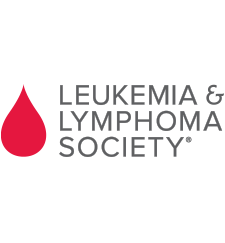Approved Use
What is KYMRIAH?
KYMRIAH is made from your own white blood cells and is a prescription cancer treatment used in patients up to 25 years of age who have acute lymphoblastic leukemia (ALL) that has relapsed (went into remission, then came back) or is refractory (did not go into remission with other leukemia treatments).
- Difficulty breathing
- Fever (100.4°F/38°C or higher)
- Chills/shaking chills
- Severe nausea, vomiting, diarrhea
- Severe muscle or joint pain
- Very low blood pressure
- Dizziness/lightheadedness
- Altered or decreased consciousness
- Delirium
- Confusion
- Agitation
- Seizures
- Difficulty speaking and understanding
- Loss of balance
You may be admitted to the hospital and treated with other medications if you have any of these side effects. If you are admitted to the hospital, tell the health care provider that you have received KYMRIAH.
Because of the risk of CRS and neurological toxicities, KYMRIAH is only available through a restricted program under a Risk Evaluation and Mitigation Strategy (REMS) called the KYMRIAH REMS.
- Hemophagocytic Lymphohistiocytosis (HLH)/Macrophage Activation Syndrome (MAS): Be sure to discuss with your health care provider the possibility of developing this life-threatening condition, and thereafter, your doctor will monitor you for the possibility of developing HLH/MAS
- Allergic Reactions: Serious allergic reactions, including anaphylaxis, which is a life-threatening allergic reaction, may occur after you receive KYMRIAH. Some signs and symptoms may include difficulty breathing, very low blood pressure, dizziness, swelling under skin, rash, nausea, and vomiting. You should seek emergency medical treatment right away if you have an allergic reaction
- Serious Infections: KYMRIAH can increase the risk of life-threatening infections that may lead to death. Tell your health care provider right away if you develop fever, chills, or any signs or symptoms of an infection
- Prolonged Low Blood Cell Counts (Cytopenia): KYMRIAH can lower 1 or more types of your blood cells (red blood cells, white blood cells, or platelets). After treatment, your health care provider may test your blood to check cell counts. Tell your health care provider right away if you get a fever or other symptoms of an infection, are feeling tired, weak, or short of breath, or have unusual bruising or bleeding
- Hypogammaglobulinemia: A condition in which the level of immunoglobulins (antibodies) in your blood is low and the risk of infection is increased. It is expected that you may develop hypogammaglobulinemia with KYMRIAH, and you may need to receive immunoglobulin replacement for an indefinite amount of time following treatment with KYMRIAH. Tell your health care provider about your treatment with KYMRIAH before receiving a live vaccine
- Secondary Cancers: KYMRIAH may increase your risk of getting cancers, including certain types of blood cancers. Your health care provider should monitor you for this
- Effects on Ability to Drive and Use Machines: Do not drive, operate heavy machinery, or do other dangerous things for 8 weeks after you get KYMRIAH because the treatment can cause temporary memory and coordination problems, including sleepiness, confusion, weakness, dizziness, and seizures
- Since KYMRIAH is made from your own white blood cells, your health care provider has to take some of your blood. This is called “leukapheresis.” It takes 3 to 6 hours and may need to be repeated. A tube (intravenous catheter) will be placed in your vein to collect your blood
- Your blood cells are frozen and sent to the manufacturing site to make KYMRIAH. It takes about 3 to 4 weeks from the time your cells are received at the manufacturing site and shipped to your health care provider, but the time may vary
- While waiting for KYMRIAH to be made, your health care provider may give you therapy to stabilize your cancer
- In addition, before you get KYMRIAH, your health care provider may give you chemotherapy for a few days to prepare your body. When your body is ready, your health care provider will give you KYMRIAH through a tube (intravenous catheter) in your vein. This usually takes less than 1 hour
- You should plan to stay within 2 hours of the location where you received your treatment for at least 4 weeks after getting KYMRIAH. Your health care provider will check to see if your treatment is working and help you with any side effects that occur
- The most common side effects of KYMRIAH include:
- Difficulty breathing
- Fever (100.4°F/38°C or higher)
- Chills/shaking chills
- Confusion
- Severe nausea, vomiting, diarrhea
- Severe muscle or joint pain
- Very low blood pressure
- Dizziness/lightheadedness
- Headache
These are not all the possible side effects of KYMRIAH. Talk to your health care provider for medical advice about side effects.
- Tell your health care provider if you are pregnant, planning to be pregnant, or breastfeeding. Your health care provider may do a pregnancy test prior to your starting treatment. No information is available of KYMRIAH use in pregnant or breastfeeding women. Therefore, KYMRIAH is not recommended for women who are pregnant or breastfeeding. Talk to your health care provider about birth control and pregnancy
- Tell your health care provider about all the medicines you take, including prescription and over-the-counter medicines, vitamins, and herbal supplements
This is a summary of the most important safety information about KYMRIAH. Talk with your health care provider or pharmacist about side effects. If you would like more information, the FDA-approved product labeling for KYMRIAH can be found at www.KYMRIAH.com, or call 1-844-NVS-CART (1-844-687-2278).
You are encouraged to report negative side effects of prescription drugs to the FDA. Visit www.fda.gov/medwatch, or call 1-800-FDA-1088.
Please see full Prescribing Information for KYMRIAH, including Boxed WARNING, and Medication Guide.



